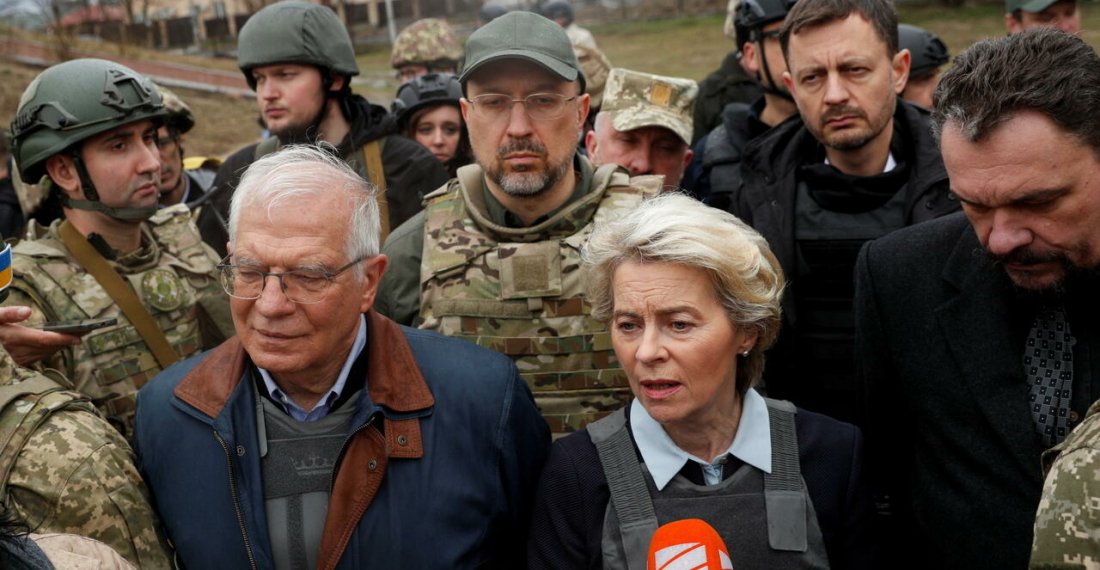European Commission president, Ursula von der Leyen and EU High Representative for Foreign and Security Policy, Josep Borrell, travelled to Kyiv on Friday in a show of solidarity with the Ukrainian government and people, on a day when again dozens were killed in indiscriminate Russian attacks against civilians at a railway station, and when further evidence emerged of a Russian massacre of Ukrainians in the town of Bucha..
The two EU leaders started their trip in Bucha, scene of an earlier Russian massacre. European Commission president Von der Leyen said the civilian deaths in the Ukrainian town showed the “cruel face” of Russia’s army.
In Bucha, where forensic investigators started to exhume bodies from a mass grave, Von der Leyen looked visibly moved by what she saw in the town northwest of Kyiv where Ukrainian officials say hundreds of civilians were killed by Russian forces.
Borrell summed up the feelings when later meeting with Ukrainian president Vlodymir Zelensky.
Mr President, I am really touched by what I have seen, by what I heard and by what I felt today. Certainly, there are two words to describe what is happening in Ukraine. One word is failure. A big failure of the Russian army that has not been able to overcome your courage.And the other word is horror: the horror of civilians being attacked, being killed in an indiscriminate way. So, we are in the presence of war crimes and we will help you, we will help the Ukrainian prosecutor to present the proofs in front of the International Criminal Court. Our EU Advisory Mission, which was working here, before the war, will deploy their effective means, tools, capacities in order to support you, and we have also allocated 7 million euros to support you in this task.
Borrell also outlined further EU assistance for Ukraine's struggle against the Russian invasion.
"I think is important to stress - since you are fighting for us, the least thing that we can do, is to give you arms. You have received lot of applauses, you have been in many parliaments in [Member States of] European union. And you got a lot of support and applauses. But you need arms, arms, arms. We have [already] allocated one billion euro and I hope that in couple of days we will be able to allocate 500 million more. And we will do everything in order that these resources will be tailored to your needs, to provide you with the arms you need to fight to resist and to win."






